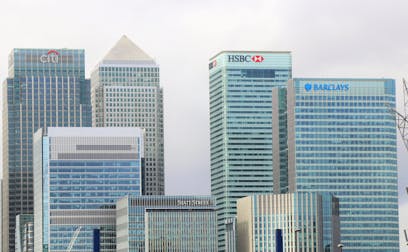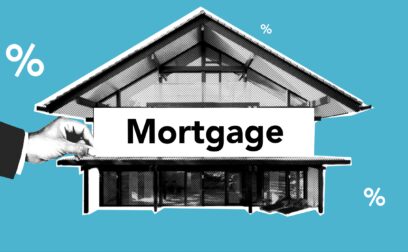- Balloons available
- Rates from 3%
- Tax benefits (EVs)
- Funds within 48 hours
No matter if your business is a limited company, PLC, partnership, or sole trader, there’s a business car finance deal for you
Financing one company car or a whole fleet of company cars makes good business sense. Instead of putting strain on cashflow and tying up hard-won capital in your vehicles, spread the cost out over time. Pay for your cars as you use them to make money for your business. Choose from purchase or lease options, secure the tax advantages of electric cars, even free up liquid cash from vehicles you already own. Whichever route you choose, car finance for business puts you in the driving seat.
| Type of finance | Upfront deposit? | Balloon payment? | Do you own the car at end of contract? | Maintenance included? | Excess miles charges? |
|---|---|---|---|---|---|
| Hire Purchase | |||||
| Hire Purchase with balloon | |||||
| Sale and Leaseback | Possibly | ||||
| Finance Lease | Optional | Possibly | |||
| Operating lease | Possibly, or you may collect a surplus | ||||
| Contract hire |
It’s quick and easy to apply for car or van finance online and our support team are on hand if you have any questions.
Have your financial statements and equipment quote ready.
Tell us about you and your business with our simple application.
If approved, you’ll receive a no-obligation, personalised quote.
Once you accept, we run some final checks to process your loan and deposit the money straight into your account.
Tom Floodgate was extremely efficient in arranging the finance for 4 vans for our business. Tom dealt with the dealers for us and made the process very smooth, he took care of everything for us. Tom is very polite and friendly and extremely helpful; he kept us up to date throughout.
Lisa Quinton,
Avenue Flooring
Yes, it is possible to finance a car through a business, although you may be liable for a tax known as Benefits in Kind, (BiK). This imposes income tax on the user for their personal use of the car.
Buying a car through a limited company is much the same as personally buying a car, except the business is the vehicle owner and the user is only the registered keeper. Does it make sense to buy a car through your business? This depends on what you will use the car for, the type of vehicle, the purchase price, the type of finance scheme you use, and the vehicle’s CO² emissions. The correct balance will bring advantageous tax benefits, an incorrect balance may make you liable for added taxes.
Business car finance rates start as low as 3%.
In most cases, if the vehicle is purchased, businesses can only reclaim VAT on car finance payments if the vehicle is used solely for business purposes. (This does not include your daily commute). If the car is used as a mix of business and personal use, you cannot reclaim the VAT. In most cases, if the vehicle is leased, businesses may reclaim 50% of the VAT on car finance payments, as well as on included charges for maintenance and excess mileage. See HMRC's guide on VAT rules for business car financing for details.
Business car finance can be cheaper than personal finance, depending on the tax advantages you can claim by using the vehicle for business purposes. Interest rates and fees and typically the same for business and personal car finance schemes.
Yes, you can still get car finance with poor credit history. although you many be asked to pay a higher deposit or higher interest rate and fees. Even if you have been turned down elsewhere, it may still be possible to secure the business car finance you need.
Even though key interest rates are edging upwards, they are still very low in historic terms. This means borrowing money is cheap, especially if you lock in a low rate now. Instead of tying cash up in the value of depreciating assets and putting strain on cashflow, finance your business vehicles to spread the cost and make the most of low interest rates on business car finance deals.
It can be. Leasing a car instead of buying with HP may create tax advantages for your business. However, lease options typically include a mileage allowance that you must stay within, or you will pay extra for every mile you use above the pre-agreed limit. Very high mileage costs can negate the tax advantages of leasing.
Yes. Lenders will usually conduct a credit check on your limited company, as well as the director(s). If you are asked to provide a personal guarantee for the loan you are liable for any defaults that may occur. Late or non-payments will be recorded on your personal credit report.
To obtain the best business car finance deals, UK businesses will typically need a credit score above 700, (although you may still be able to lease a car with lower scores). Not sure what your business score is? Check your business credit report and discover the best ways to improve your score now.
To apply for business car finance, you will typically need:
Join the 70,000+ businesses just like yours getting the Swoop newsletter.
Free. No spam. Opt out whenever you like.



























We work with world class partners to help us support businesses with finance
Suite 42, 4th Floor, Oriel Chambers, 14 Water Street, Liverpool, L2 8TD
View in Google MapsKingfisher Way, Silverlink Business Park, Newcastle upon Tyne, NE28 9NX, UK
View in Google MapsSuite 105A, Airivo, 18 Bennetts Hill, Birmingham, B2 5QJ
View in Google MapsAberystwyth Innovation and Enterprise Campus
Gogerddan Campus
Aberystwyth University
Ceredigion
SY23 3EE
Dogpatch Labs, The CHQ Building, Custom House Quay, Dublin, Ireland
View in Google MapsSuite 801, Level 8, 84 Pitt Street, Sydney, NSW 2000, Australia
View in Google Maps43 W 23rd St, New York, NY 10010, United States
View in Google Maps21 Dreyer Street, Cape Town, South Africa, 7708
View in Google MapsClever finance tips and the latest news
delivered to your inbox, every week
Join the 70,000+ businesses just like yours getting the Swoop newsletter. Free. No spam. Opt out whenever you like.




